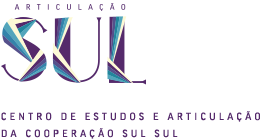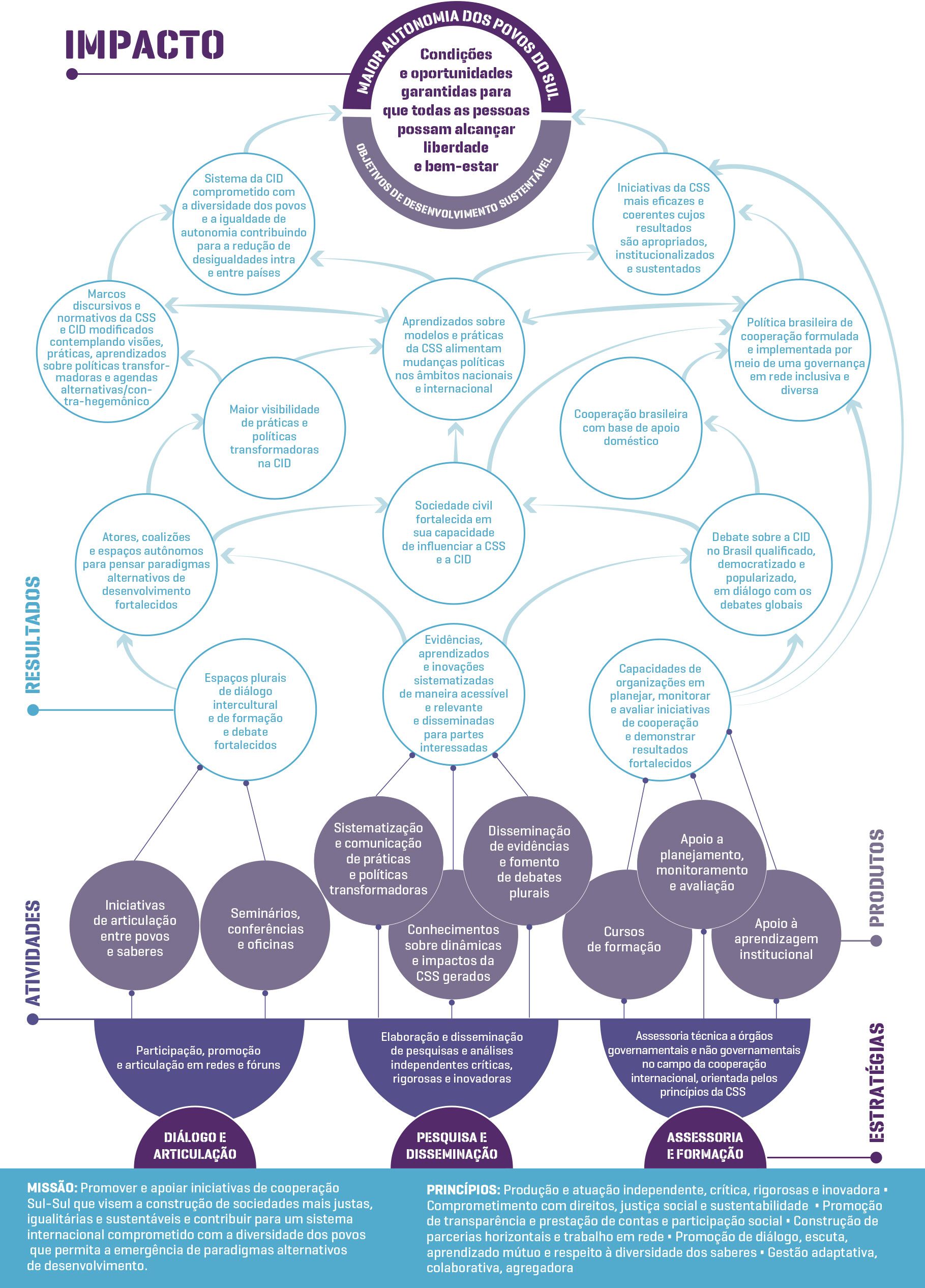O Articulação SUL se estrutura a partir de três áreas de atuação que buscam aprimorar o diálogo entre prática, pesquisa e políticas públicas:
Pesquisa e Aprendizagem
Informação, Diálogo e Formação
Articulação Internacional e Cooperação Técnica
Para assegurar que as políticas públicas e práticas da cooperação Sul-Sul sejam informadas por evidências empíricas, promovemos, em colaboração com os atores envolvidos, as seguintes atividades:
- Produção de estudos e análises sobre Cooperação Internacional para o Desenvolvimento e Cooperação Sul-Sul;
- Monitoramento e avaliação de programas e projetos de Cooperação;
- Estudos sobre políticas públicas e práticas emancipatórias Brasileiras;
- Facilitação de processos de reflexão e aprendizagem.
Para assegurar um debate público amplo e bem informado sobre Cooperação, e que respeite a diversidade de experiências e opiniões dos cidadãos, promovemos e apoiamos as seguintes atividades:
- Realização e divulgação de estudos e análises produzidos por meio de boletins informativos, artigos, e policy papers;
- Promoção e organização de seminários, palestras e espaços de discussão;
- Elaboração e facilitação de cursos de formação;
- Participação e engajamento em redes e fóruns relacionados á cooperação.
O Brasil tem um valioso repertório de conhecimentos e práticas de desenvolvimento que podem constituir um diferencial qualitativo da Cooperação, portanto, apoiamos as seguintes atividades:
- Sistematização de experiências brasileiras para inserção internacional e troca de experiência junto a outros países do Sul;
- Análise de oportunidades de projetos de Cooperação com organizações e governos de outros países;
- Apoio a organizações brasileiras interessadas em iniciar e/ou fortalecer seu trabalho internacional e diálogo com outros povos, por meio de preparação, contextualização e acompanhamento de projetos de Cooperação.
Projetos de Pesquisa e Aprendizagem
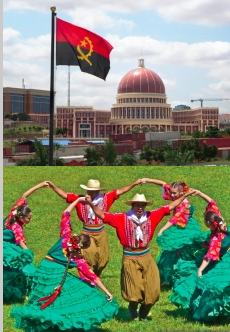
Perspectives from Territory
Prospects from Territory is a publication from Brazil and the South Observatory which aims contribute with information and analysis about Brazilian international engagement from a territorial perspective seeking to cover the various dimensions of Brazilian presence at Global South.
- Angola and Brazil: operationalizing the concept of South-South cooperation? – Autoras: Laura Trajber Waisbich, Melissa Pomeroy
- Brazil and Paraguay: issues from bilateral relations – Autores: Gustavo Rojas de Cerqueira César, Tomaz Espósito Neto, Gustavo Macedo e Renata Boulos
- Boa vizinhança? Relações Brasil-Bolívia e os desafios de uma parceria assimétrica – Autoras: Laura Trajber Waisbich, Melissa Pomeroy
- Haiti – Um laboratório de engajamento multisetorial – Autoras: Laura Trajber Waisbich, Melissa Pomeroy
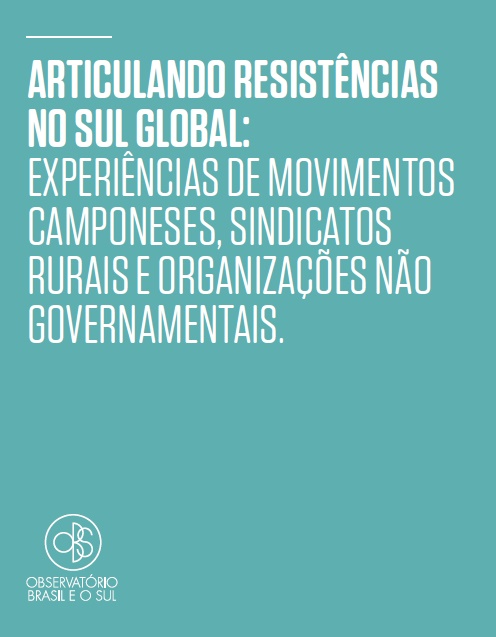
Articulating Resistances at Global South: experiences from peasant movements, rural unions and non-governamental organizations
This publication identify and discuss the transnational experiences of Brazilian social actors related to agrarian and agrofood system issues, as peasant movements, rural unions and non-governamental organizations. The following movements and organizations were partners of this process: Farmer Women Movement (MMC), Small Farmer Movement (MPA), National Confederation of Agriculture Workers (CONTAG), FASE, INESC, IBASE (NGO’s), the Brazilian Network of Environment Justice and Brazilian Forum of Food Security and Sovereignty (FBSSAN). This study was supported by Oxfam Brazil.
POMEROY, Melissa; SILVA, Daniel Martins. Articulating Resistances at Global South: experiences from peasant movements, rural unions and non-governamental organizations. São Paulo: Oxfam Brazil, 2017.
Read it here.

Learning Flexibility: Complexity, Innovation & Inter-Urban Knowledge Transfer
A three year reseach project that applies an interdisciplinary case study approach to examine relationships between current and future urban complexity and vulnerability and innovative solutions that emerge in response. We examine how both infrastructures and institutions are affected by 3 thematic pillars: (i) energy; (ii) governance and participation; and (iii) the environment. Our research is organized in 3 work packages on urban challenges, innovative solutions, and inter-urban knowledge exchange.
We conduct initial stakeholder and issue mapping to develop a conceptual framework, and undertake comparative desk and field based qualitative case studies, including interviews with key stakeholders; user-group surveys; and participant observation. We collaborate with local and international stakeholders across, cities, sectors and approaches. We derive lessons and practices from case studies and develop a methodology and toolkit to facilitate transfer of lessons between cities, and develop networks between global urban stakeholders.
The host institution is the Peace Research Institute Oslo (PRIO), with researchers from Energiråd Innlandet, the University of Oslo, Oslo School of Architecture and Design (AHO), SINTEF – all Noewegean, and Articulação SUL.
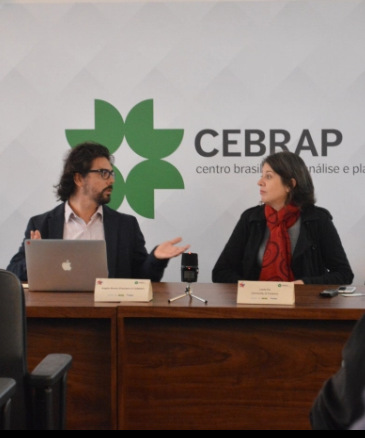
International social protection policy transfer: emerging issues for Brazilian South-South cooperation
During the last two decades, several developing countries governments began to introduce or enlarge social protection instruments, often incorporating ideas promoted by international actors. Some Brazilian policies have gained prominence in this context and they have been disseminated and transferred to other Southern countries. The paper works with transfer and policy diffusion literature and it argues that object and arrangements from Brazilian cooperation provide contributions from different natures for the expansion of social protection policies in other contexts. To operate the analysis, two instruments of Fome Zero Strategy, namely, conditional cash transfer and local public procurement, are presented.
Authors: Melissa Pomeroy and Bianca Suyama
Paper elaborated for the “International Seminar on Policy Diffusion”, presented by Brazilian Centre of Analysis and Planning (CEBRAP) and held on 9-11 may, 2016.

Triangular cooperation in social protection: lessons from Brazil for the 2030 agenda
This paper, commissioned by the UN Office for South-South Cooperation (UNOSSC), aims to explore the lessons learned through Brazilian TrC in social protection and their potential contribution to the 2030 agenda. The first section of the paper briefly describes the evolution of the social protection debate in development cooperation, followed by overall picture of Brazilian TrC. The third section presents the three initiatives: the Purchase for Africa from Africans, the World Without Poverty Platform and the Programme to eradicate child labour. The final section concludes by putting forward possible contributions of Brazilian TrC in social protection to the 2030 agenda.
Authors: Bianca Suyama, Marina Caixeta and Gustavo Macedo
Suyama, B; Caixeta, M; and G. Macedo (2016) Triangular cooperation in social protection and food security: lessons from Brazil for the post 2015 agenda. UN SSC Discussion paper. New York: UNDP.

Monitoring and Evaluation Mechanisms for South-South and Triangular Cooperation: Lessons from Brazil for the 2030 Agenda
This paper, commissioned by the UN Office for South-South Cooperation (UNOSSC), and developed by Articulação Sul, Instituto de Pesquisas Econômicas Aplicadas (IPEA), Centro Brasileiro de Relações Internacionais (CEBRI) and BRICS Policy Center (BPC), aims to (a) map out what has been done so far in M&E by the institutions executing SSDC/TrC in the country; (b) understand how the main stakeholders perceived Brazilian SSC/TrC M&E and particularly its conception and application of SSC principles, measuring process, results and impact, innovative approaches; (c) analyse lessons to inform policies and practices of the development community; and (d) contribute to global initiatives and debates that aim to build better M&E frameworks for SSDC/TrC, including efforts promoted by the Network of Southern Think Tanks (NeST).
Articulação Sul, IPEA, CEBRI, BRICS Policy Center. Monitoring and Evaluation Mechanisms for South-South and Triangular Cooperation: Lessons from Brazil for the 2030 Agenda. New York, UNDP, 2016

UNICEF Brazil Trilateral South-South Cooperation: Lessons Learned and Recommendations
This study systematize key lessons from UNICEF Brazil’s experiences and seeks to support knowledge sharing and improve UNICEF’s understanding of the strategic value of SSC. Articulação SUL was hired to: (1) review key UNICEF documents related to their TSSC work; (2) revise and complement sections drafted by UNICEF Brazil; (3) analyse the transcripts of the interviews carried out by UNICEF Brazil; (4) systematize the main progress results and lessons learned, based on the above; and (5) add an external perspective to the study. UNICEF Brazil’s SSC Unit provided guidance and feedback throughout the process.
Authors: Bianca Suyama, Michelle Barron
Reference: Suyama, B., Barron, Michelle. Trilateral South-South Cooperation: Lessons Learned and Recommendations. UNICEF, September, 2016.
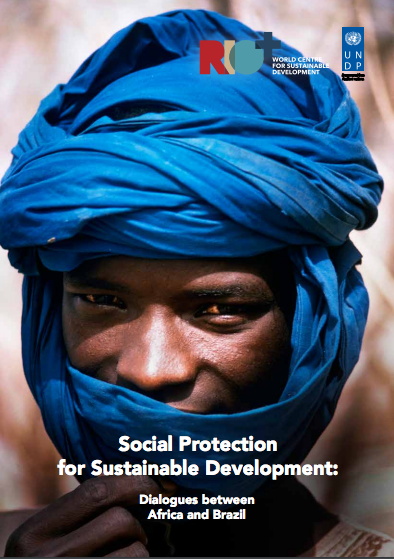
Brazil-Africa Cooperation on Food and Nutrition Security: Planting seeds in unfamiliar soil
The current context of development cooperation is characterized by the transition from emergency food aid to efforts to develop national programmes on access to food, redefine the strategies of international organizations and strengthen ties between agriculture, nutrition and social protection - some of them with a focus on building national programmes capable of linking access to food production. External and internal factors in Brazil are resulting in growing attention to Brazilian food and nutritional security programmes (PAA and PNAE) in global policy spaces and similar programmes being adopted in African countries. Due to the institutional specificities of Brazilian South-South cooperation, these programmes are implemented through trilateral arrangements with international organizations. To analyze the potentials and challenges of "policy transfer" in this sector and possible paths for strengthening South-South cooperation, this article will explore the lessons learned thus far in the implementation of these programmes.
Authors: Mariana Santarelli and Bianca Suyama
Santarelli, M; and B. Suyama (2016) Brazilian food and nutritional security in Africa: Planting seeds in unfamiliar soil. In Social Protection for Sustainable Development: Dialogues between Africa and Brazil. Rio de Janeiro: UNDP World Centre for Sustainable Development (RIO+ Centre)
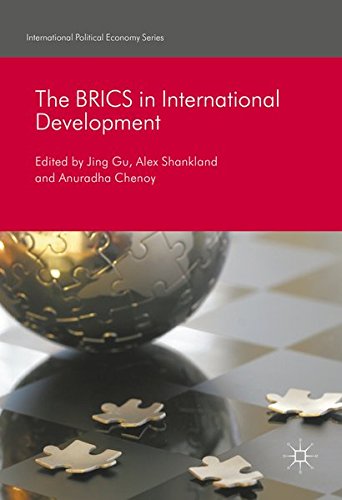
Civil society, BRICS and international development cooperation: perspectives from India, South Africa and Brazil
The chapter explores Brazilian, Indian and South African civil society engagement in South–South development cooperation (SSDC) and in debates of these countries’ roles in BRICS. Despite the apparently more promising engagement environment in the ‘democratic emerging powers’, civil society efforts to achieve effective influence over the SSDC agendas of both BRICS and of their own countries face many obstacles. The chapter discusses commonalities and differences across these three countries and their fellow BRICS, Russia and China, and analyses key characteristics and tendencies of transnational civil society engagement. Final remarks include prospects for civil society engagement with BRICS international development cooperation, with a particular focus on the New Development Bank.
Authors: Melissa Pomeroy, Alex Shankland, Adele Poskitt, Kaustuv Kanti Bandyopadhyay and Rajesh Tandon
Published in: Jing Gu, Alex Shankland, Anuradha Chenoy (org.) The BRICS in international development. International Polical Economy Series. Palgrave Macmillan, 2016.

Brazil as a development partner under Lula and Dilma: Shifts and continuities
The chapter explores, through Foreign Policy Analysis, the shifts and continuities of Brazil’s trajectory as a partner in South–South development cooperation (SSDC) by comparing President Dilma Rousseff’s first administration (2011–14) to Luiz Inácio Lula da Silva’s two presidential terms (2003–10). The paper argues that despite the slowdown of presidential diplomacy, new priorities, budgetary cuts and a much more challenging political and economic national context during Rousseff’s mandate, coalitions have continued to mobilize, ensuring continuity in certain sectors of technical cooperation, as well as expansion into new areas. The intersections between technical cooperation, financial cooperation and trade also increased during the period, while the national development cooperation framework remained marked by institutional and legal fragilities.
Authors: Bianca Suyama, Laura Trajber Waisbich and Iara Costa Leite
Published in: Jing Gu, Alex Shankland, Anuradha Chenoy (org.) The BRICS in international development. International Polical Economy Series. Palgrave Macmillan, 2016.
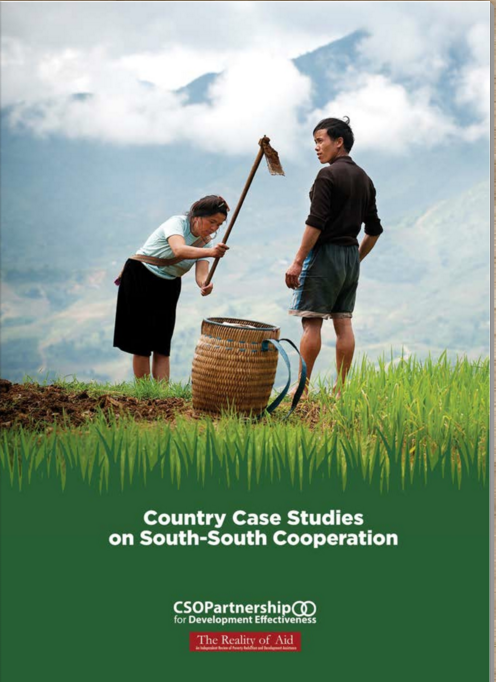
Country case studies on South-South Cooperation
"Country case studies on South-South Cooperation" on-line book. It includes analyses of South-South cooperation in Argentina, Cuba, Brazil, Kenya, India, Nepal, BRICS and Africa and Nigeria. Published by Reality of Aid and CSOs Partnership for Effective Development. Articulação Sul contributed with the Brazilian chapter.
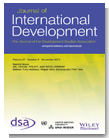
Brazilian South–South Development Cooperation: The Case of the Ministry of Social Development in Africa
The article analyses domestic and external drivers of the rise of South–South development cooperation to a foreign policy priority under the Lula administrations. It argues that the rise was a consequence of presidential leadership, growing domestic mobilisation, shifts in the global political economy and the prioritisation of South–South development cooperation by traditional donors. It explores the case of the Ministry of Social Development cooperation with Africa, focusing on two experiences—the Bolsa Família and the Purchase from Africans for Africa Programme. Although the ministry's partnership with traditional donors remained constant, there was increased domestic leadership in the food purchase programme.
Authors: Iara Leite, Melissa Pomeroy e Bianca Suyama
© 2015 UNU-WIDER. Journal of International Development published by John Wiley & Sons, Ltd.
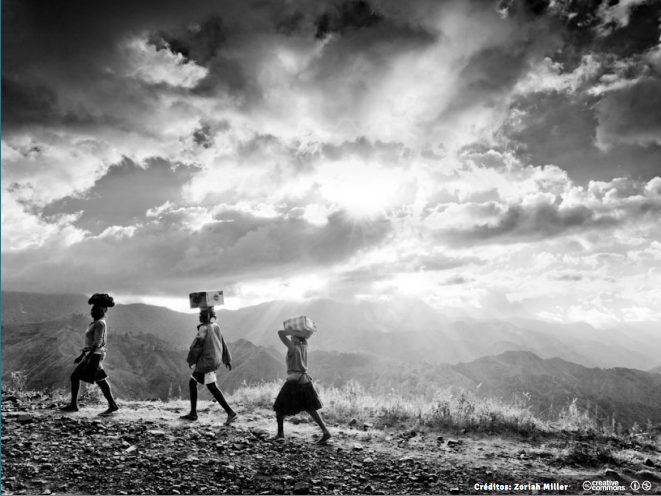
Haiti – Um laboratório de engajamento multisetorial
The first edition of Perspectives from the Territory addresses the multifaceted Brazilian engagement in Haiti, from its leadership of the United Nations Peace Operation (MINUSTAH) and its international cooperation for development to the presence of Brazilian civil society organizations and the private sector and the challenges and responses related to Haitian migration to Brazil.
Authors: Melissa Pomeroy and Laura Trajber Waisbich

Civil society’s contribution to South-South cooperation
This project was conducted jointly with the Institute of Development Studies (IDS) in England and PRIA in India. Researchers and activists cooperated with the project to systematize how civil society contributes to the role of middle-income countries as innovators and providers of cooperation for development. Articulação SUL produced a case study on the proposed Community Seed Banks Creole in areas of family farming in Mozambique and South Africa. It also participated in the GPDEC meeting in Mexico, led the production of a mini-documentary and contributed for synthesis design products.
Read the study here

Africa-Brazil Cooperation in Social Protection: drivers, lessons and shifts in the engagement of the Brazilian Ministry of Social Development (UNU-WIDER)
This paper was produced for the World Institute for Development Economics Research at the United Nations University (UNU-WIDER) and aimed to understand the drivers behind the changes in the Ministry of Social Development and Fight against Hunger’s (MDS) cooperation with African countries, and also to systematize lessons learned by MDS. In doing so, we sought to contribute to the international debate over the effectiveness of South-South cooperation for development, unpacking the challenges and opportunities encountered by developing countries to allocate human and financial resources in promoting international development.
Read the paper here

The Current State of Debate on International Development Cooperation in Brazil (IDS)
The programme, led by the Institute of Development Studies (IDS), is consolidating an evidence base on the role of “emerging countries” in international development, producing new insights and practical guidance for actors engaged in international cooperation. Articulação SUL, in partnership with CEBRAP, held the “Brazilian international cooperation: The state of the debate” study, which analysed the main ideas, narratives and interests influencing the South-South cooperation for development. In addition to the final report, policy briefs were produced both in Portuguese and English. In 2014, Articulação SUL co-organized parallel events to the BRICS Academic Forum.
Visit the Programme’s website
Read the report: Brazil’s engagement in International Development Cooperation: the state of the debate
Read the Policy Brief in English
Read the Policy Brief in Portuguese
Projetos de Informação, Diálogo e Formação
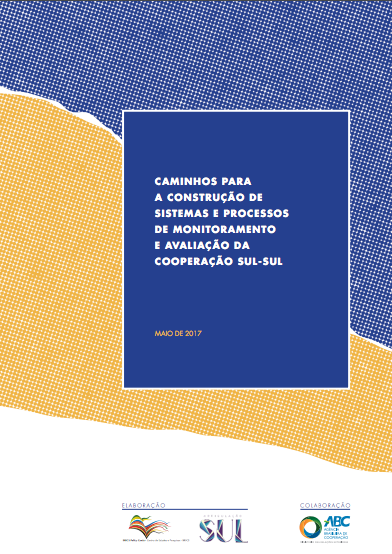
Paths for Developing South-South Cooperation Monitoring and Evaluation Systems
This document is based on the “Dialogues on Brazilian South-South Cooperation” held in Rio de Janeiro, in January 2017. The publication reflects debates among government, academics and civil society from different developing countries. The authors present ideas about specific issues on South-South cooperation (SSC), in order to subsidize the construction of evaluation and monitoring systems that take into account SSC practices and contexts. South-South technical cooperation evaluation that helps to generating relevant evidence on capacity development and knowledge sharing can make a decisive contribution to distinguish it from other experiences in the field of international development cooperation. In addition, building more accurate and adherent indicators to South-South practices should contribute to a more favorable environment for capacity building and knowledge exchange.
Read it here.
BRICS Policy Center; Articulação Sul. Paths for Developing South-South Cooperation Monitoring and Evaluation Systems. Brasília: Ministry of Foreign Affairs, 1ª ed., 2017.
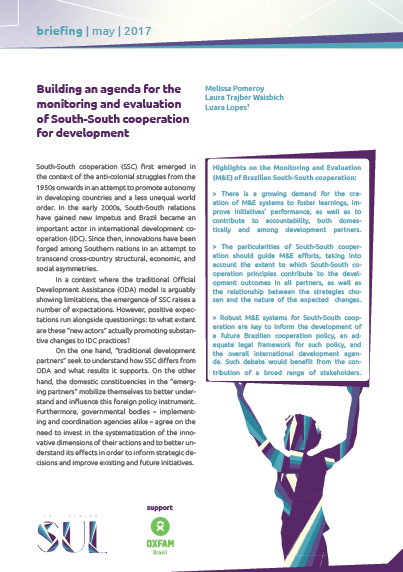
Building an agenda for the monitoring and evaluation of South-South cooperation for development
This new edition of 'Briefing' discusses South-South cooperation (SSC) monitoring and evaluation, considering the Brazilian experience. Nowadays, there is a growing demand for the creation of monitoring and evaluation (M&E) systems that facilitate learning, support the improvement of initiatives and contribute to domestic and peer accountability. The paper points to the importance of M&E practices that recognize and absorb, conceptually and practically, the singularities of South-South cooperation, such as its principles and approaches.
In addition, robust M&E practices have the potential to inform the international development agenda, and in the Brazilian case, the building of a future technical cooperation policy. Finally, the text points out recommendations to strengthen the M&E of SSC.
Read it here.
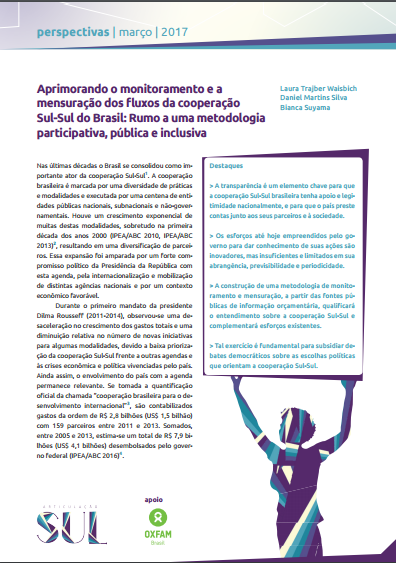
Monitoring and Measuring of South-South Cooperation Flows in Brazil
Information transparency is a key element for Brazil’s South-South cooperation initiatives to garner national support and legitimacy and for the country to be accountable to its partners and to society. Due to this, the first edition of "Briefing" points a new debate: use of public information systems to understand and make visible Brazilian South-South cooperation. Data, nowaday available for public consultation are sufficient? Measuring initiatives of South-South cooperation circumscribe singularities of Brazilian proceedings? To what extent is possible the use of budgetary informations in order to complement these efforts?
Read it here
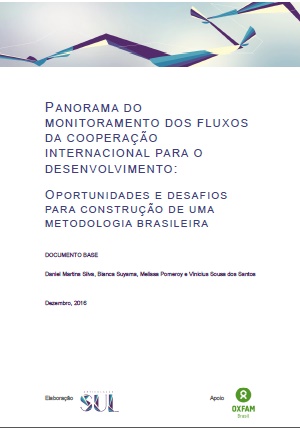
Overview of Monitoring International Development Cooperation Flows: opportunities and challenges for building a Brazilian methodology
This report presents and discuss the main contemporary methodologies of measurement on international cooperation for development (including North-South and South-South cooperation). Aiming to build a monitoring system for international development flows through public budget were raised the main characteristics, critics and discussions about this methodologies. We focus on three central points: modalities (nature of the flows); instruments (mechanisms of which cooperation is developed) and unity of measurement (which indicators are used for measurement). The research was supported by Oxfam Brazil.
Read it here
SILVA, Daniel Martins; SUYAMA, Bianca; POMEROY, Melissa; SANTOS, Vinicius Sousa dos. Overview of monitoring international development cooperation flows: opportunities and challenges for building a Brazilian methodology. São Paulo: Articulação Sul, 2016.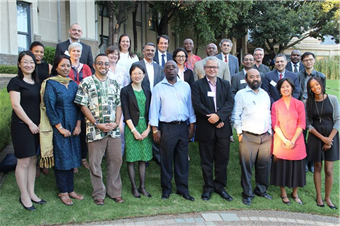
Network of Southern Think Tanks
Network of Southern Think-Tanks (NeST) was created to provide answers, from the South, to the need to build a global plataform to analyse, monitor and account South-South cooperation, as well as to share knowlegde and consolidate common positions among partners to subsidize their participation in global forums on international development issues. The following comprise its international secretariat: IPEA/Brazil, China Agriculture University/China, Regional Information Systems for Developing Countries/ India and South African Institute for International Affairs/South Africa.
To read more, click here.

“Brazil-Africa: political, economic and regulatory tendencies” debate
In October 3, 2014, Brazil and the South Observatory promoted the "Brazil-Africa: political, economic and regulatory tendencies" debate in order to present OBS, its objectives and research/monitoring agenda; contribute to the formation of new analytical starting points and qualifying interpretations on Brazil-Africa Relations; and strengthen contacts among participants to develop information and analysis sharing networks about the Brazilian role in the global South.

GPDEC Mexico project
In this Institute of Development Studies Rising Powers in International Development programme initiative, Articulação SUL, along with PRIA and China International Development Research Network, produced a Case study of civil society-led South-South Cooperation, engaged CSO's and prepared inputs for a Focus Session at the High-Level Meeting of the Global Partnership for Effective Development Cooperation in Mexico, in April 2014.

Short courses in IRI – PUC-RJ
The courses "Looking South in search for new social transformation paradigms" and " Transnationalism and Social Movements" were given as part of a semestral event that took place in October 29 to 31, 2014.

Article – Brazilian development cooperation: critical juncture or hiatus?
This article was published in IDS' Globalisation and Development blog. It discusses the state of Brazilian development cooperation as the country prepared to host the 2014 FIFA World CUP.
Author: Bianca Suyama
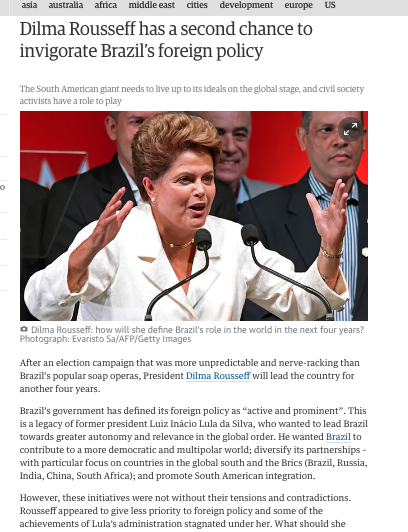
Article – Dilma Rousseff has a second chance to invigorate Brazil’s foreign policy
This article, published in The Guardian, analyses some of the foreign policy challenges facing presidente Dilma Rousseff in her second term.
Authors: Bianca Suyama and Gonzalo Berrón
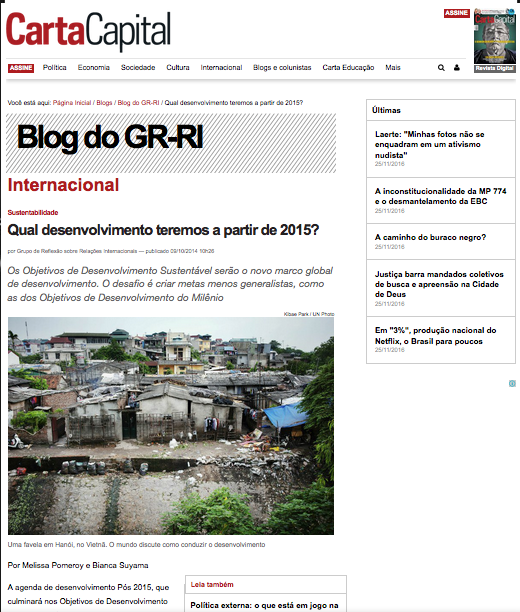
Article – Qual desenvolvimento teremos a partir de 2015?
Published in Carta Capital magazine, this article identifies the challenges related to the Sustainable Development Goals and the disputes regarding its formulation.
Authors: Bianca Suyama and Melissa Pomeroy.

Brazil and the South Bulletin’s first edition
A Brazil and the South Observatory's publication that aims to spread information and knowledge about Brazil's role in the global South.
This first edition brings two articles on integration mechanisms of great interest for Brazilian foreign policy: BRICS and CPLP.
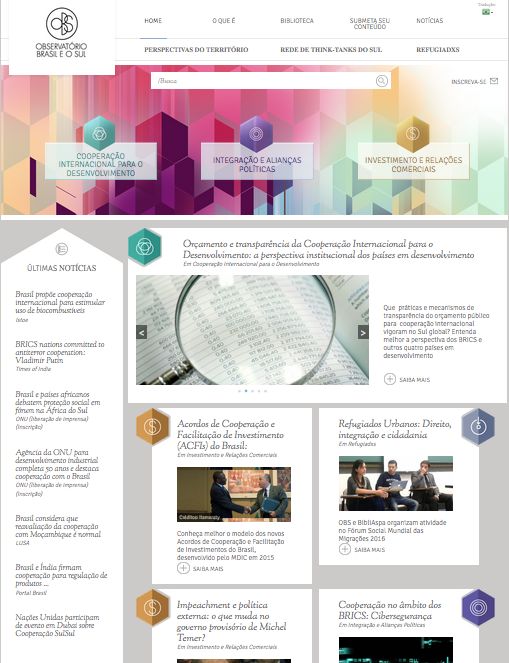
The Brazil and the South Observatory
The overall objective of the Observatory is to promote transparency and critical, wide-ranging debate about Brazil’s performance in the global South, highlighting practices that contribute to more just and equitable societies, and questioning actions that endanger human, political and social rights through the provision and production of analytical content and relevant information and systematized. This is an Articulação SUL initiative, supported by Oxfam Brazil.
Visit the Brazil and the South Observatory

Series of debates on International Cooperation for Development in Brazil, in partnership with the INCIDE
Looking to deepen the discussion the practice, challenges and opportunities of international cooperation for Brazilian development, Articulação SUL and INCIDE, with support from Friedrich Ebert Foundation, held a series of discussions on relevant topics. The events also sought to: promote a space for sharing the experiences and views from individuals from various sectors and institutions that are directly involved with the Brazilian cooperation; discuss possible avenues for consolidation and improvement of Brazilian CID; and make concrete recommendations for improving Brazilian cooperation. The series' first three events were the following:
International Cooperation as public policy - November 25, 2013
Exploring Brazilian South-South Cooperation Practises and possibles paths to a public policy and cooperation agency - May 26 and 27, 2014
Principles and procedures to guide Brazilian international cooperation - November 19, 2014
Structural cooperation: opportunities and challenges - October, 20, 2015

Diverse Voices process facilitation in Brazil
The Diverse Voices is a project led by the Institute of Development Studies (IDS) which aims to give visibility to creative ideas that depart from the experience of those who live daily with the problems of development in their towns and communities. It is expected from this initiative, stimulate national, regional and international dialogue of people directly involved in actions to develop a better city, so they can contribute to the formulation of policies most suited to their own realities. Articulação SUL was the country convener to this initiative in Brazil.

Training for teachers of Unilab
Articulação SUL acted as moderator and facilitator, with support from the Dean of Institutional Relations at the University of International Integration African-Brazilian Lusophony (ProInst / UniLab) training workshop on international cooperation. The workshop aimed to strengthen the newly formed ProInst’s identity and stimulate the reflection on the concept and practice of solidary cooperation in Unilab.
Click here for further information

Class for extension course on Cooperation of UNB
The Institute of International Relations, University of Brasilia (IREL-UNB) promoted the extension course “Theory and Practice of International Development Cooperation”. The target audience for the programme included professionals from public administration, international organizations, cooperation agencies and students of international relations or related areas involved in international cooperation. Articulação SULtaught a lesson about civil society.

Preparatory meeting for the Forum on Aid Effectiveness in Busan and on International Cooperation
The main aim of this event, co-organized with ABONG, was to promote debate on the system of international cooperation and explore ways to strengthen the participation of civil society in national and international debates. As a result, a civil society statement to the Brazilian Forum on Aid Effectiveness in Busan was elaborated.
Click here for further information

Seminar on the role of South-South cooperation in African agriculture
The objectives of the seminar – organized by International Policy Centre for Inclusive Growth (IPC-IG), Future Agriculture Consortium and UK Department for International Development – were to facilitate knowledge sharing and to promote critical reflections on the role of South-South cooperation in the development agriculture in Africa. Articulação SUL supported the preparation of content for the workshop, its agenda and also produced the event’s report.
Further information here
Projetos de Articulação Internacional e Cooperação Técnica
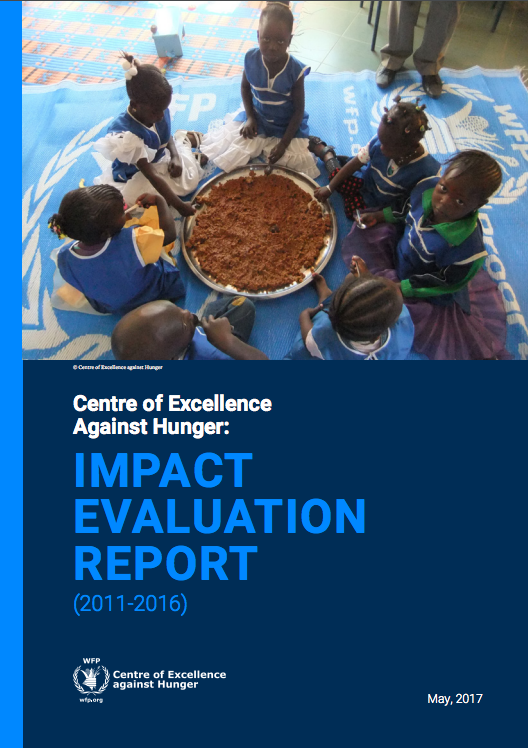
Impact Evaluation report: Centre of Excellence against Hunger
The Centre of Excellence against Hunger, a partnership between the World Food Programme (WFP/UN) and the Brazilian government. It completed, in 2016, five years since its establishment. Over the past years, the Centre has been supporting countries to strengthen their capacities to develop and enhance national initiatives in areas such as social protection, home-grown school feeding, and food and nutrition security, aiming at encouraging innovative, sustainable, and nationally-owned solutions to overcome hunger.
To explore and communicate the lessons learned and the results achieved so far, this external evaluation assessed the degree of achievement of Centre of Excellence’s objectives, the efficiency of its strategies, the quality of its methodologies. It also identified recommendations that can inform future interventions. Since this is Centre’s first evaluation, we have chosen a methodological strategy to give an overall picture of the Centre’s contribution during its five years of existence. Guiding our analysis there is a comprehensive Evaluation Matrix, based on the Centre's Theory of Change, and which encompasses the full range of Centre’s strategies and methodologies, providing the basis for the thorough analysis developed in this report. To enhance data availability for future evaluative endeavours, particular Monitoring & Evaluation recommendations are drawn in the conclusions. In the context of the 2030 Agenda this evaluation also aimed to provide evidence-based information on the contribution of South-South and Triangular cooperation, as well as capacity development interventions, to attaining the Sustainable Development Goals (SDGs).
The impact evaluation covers the period from 2011 to 2016 and was carried out in partnership with MOVE Social. Parallel to the evaluation process, we have supported the Centre of Excellence in strengthening its M&E system. In that sense, we have designed a Monitoring, Evaluation and Learning system to be implemented by the Centre in the years to come.
Read it here

Review of the report “Investments to End Poverty” (IEP)
Development Initiatives hired Articulação SUL to give advice on how different actors could use the information from the IEP report on their work. In addition to that, the organization seeks feedback on how to continue this line of research in order to contribute to the work of people and organizations involved in the analysis of, and engagement with, Brazilian cooperation.
Read the report “Investments to End Poverty” here

Advisory to the Lula Institute: New unified approaches to ending hunger in Africa
The advisory to the Lula Institute consisted of weekly presentations of content production to prepare and build up the knowledge necessary to subsidize its participation in the “Towards the African Renaissance: Renewal of Partnership for a unified approach to end Hunger in Africa by 2025, based on the framework of CAADP” High Level Meeting. In addition to providing advice, Articulação SUL also attended the event and processed and analysed the main outcomes of the workshop providing technical and strategic inputs to the Institute’s activities.

Brazilian agricultural innovations and technologies with the potential to transfer in cooperation projects with Africa
The overall goal of this ICONE-led project was guiding the Bill and Melinda Gates Foundation (and possibly other organizations) in their investments in Brazilian agricultural technologies with potential for use in Africa. Towards this end, the project aimed to map and categorize Brazilian agricultural technologies (agronomic and organizational / social) with potential for use in Africa. Articulação SUL advised the project on the theme of international cooperation and gave support (calendar, facilitation and reporting) for the study’s presentation workshop to Embrapa.
Read the study here.

Base Study for capacity building and strengthening of local authorities and networks in Brazil and Mozambique project as actors in a decentralized international cooperation
The study, produced for United Cities and Local Governments aimed to subsidize, with qualified information, the understanding of planning instruments of Brazilian intermediate cities (Master Plans, Participatory Budgeting and Single Sign Inclusive), within the framework of the project “Capacity building and consolidation of Local Authorities and AL networks in Brazil and Mozambique as actors in a decentralized international cooperation”. The project seeks to strengthen the development management capabilities of Mozambicans and Brazilian municipalities.
Read the study here
